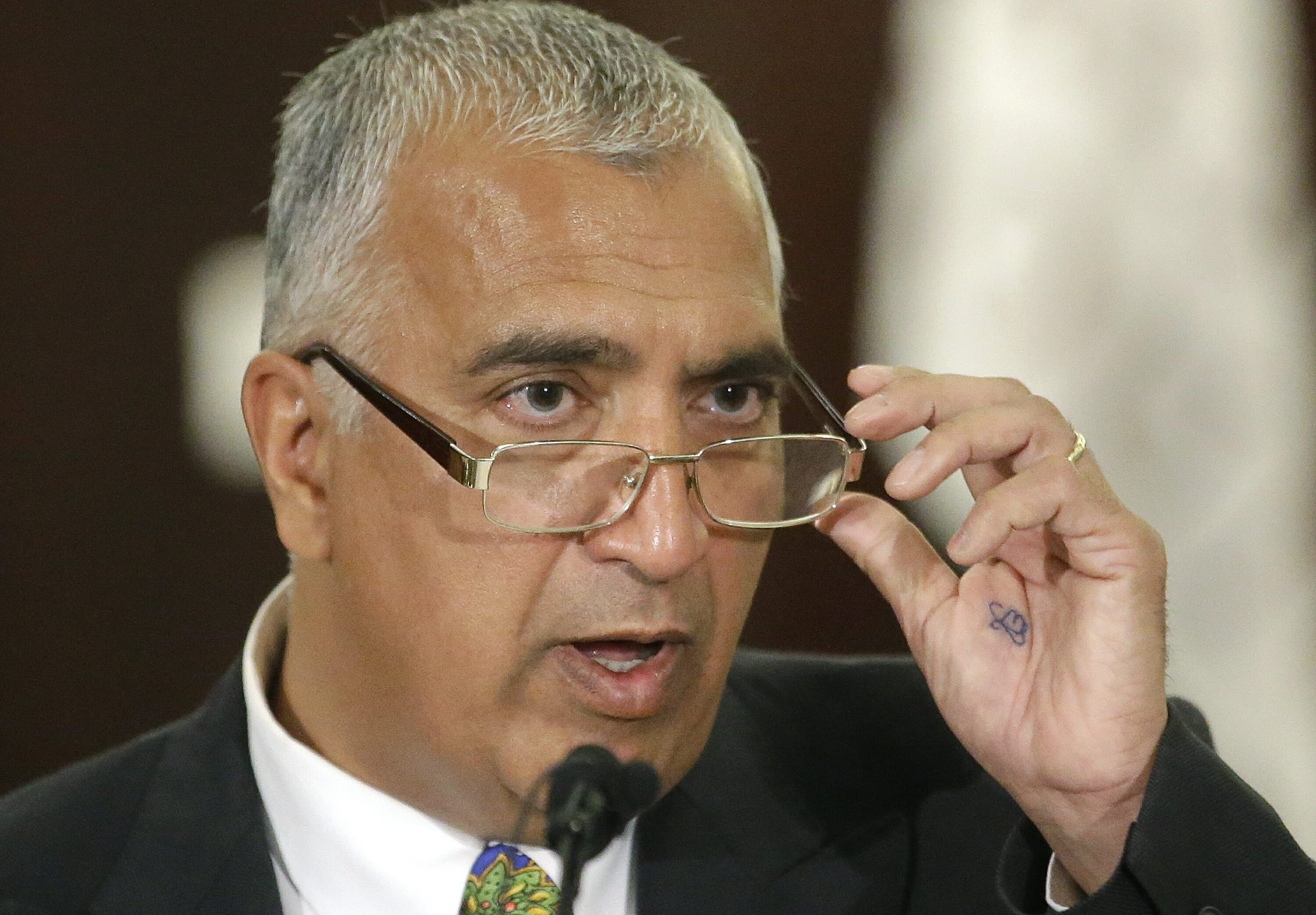
Utah prosecutor says he won't enforce strict abortion law
SALT LAKE CITY (AP) — As Utah defends its strict new abortion ban against a court challenge, the chief prosecutor overseeing the county with the state’s only two clinics has said he won’t enforce the measure.
Democratic Salt Lake County District Attorney Sim Gill’s decision marks the latest example of an official resisting such laws passed by states around the country.
Gill said Tuesday the Utah ban on abortions after 18 weeks appears unconstitutional, so filing felony charges against doctors who perform them as the court challenge plays out could violate their rights.
“I think that’s the only legal and ethical thing for me to do, which is not use the power of my office to violate the constitutional rights of my citizens when there is well-established precedent that says it is unconstitutional,” he said.
Gill’s positon and a similar stance by the attorney general of Michigan came as more GOP-leaning states around the U.S. pass increasingly restrictive abortion laws, including an Alabama measure approved by lawmakers on Tuesday that would outlaw almost all abortions in the state. It is awaiting consideration by the governor.
With anti-abortion advocates optimistic about challenging Roe v. Wade before the new conservative majority on the U.S. Supreme Court, blue-leaning states are moving to secure access to abortions.
Against that backdrop, pushback from prosecutors could become more common, especially in politically mixed areas, said Mary Ziegler, a professor at Florida State University College of Law.
Prosecutors also have a lot of discretion about how laws are enforced because they decide who to charge and what cases to file. Before the 1973 decision legalizing abortion, many bans weren’t enforced unless there were complications, Ziegler said.
“You’ll see more statements of this kind. But how they’ll be enforced is much more complicated than what first may seem to be the case,” she said.
Most laws have exceptions. The measure in Utah has allowances for cases of rape, fatal fetal deformity and serious detriment to a mother’s health.
Like Utah, Arkansas has also passed a ban on abortions after 18 weeks.
Gill secured a federal order on Monday confirming his office won’t have to enforce the measure as the court challenge plays out.
However, if the law is eventually upheld by the U.S. Supreme Court, Gill said, he likely would have to enforce it.
“My job is to keep my personal beliefs out of it, but I absolutely believe that our citizens have constitutional rights and our institutions have an obligation to serve those citizens and not simply roll over and play dead,” he said.
The Utah Attorney General’s Office declined to comment Wednesday on Gill’s decision.
Michigan’s attorney general, Democrat Dana Nessel, pledged at a state Planned Parenthood conference in April not to enforce the state’s pre-existing abortion ban if Roe v. Wade is overturned.
The Western Journal has not reviewed this Associated Press story prior to publication. Therefore, it may contain editorial bias or may in some other way not meet our normal editorial standards. It is provided to our readers as a service from The Western Journal.
Truth and Accuracy
We are committed to truth and accuracy in all of our journalism. Read our editorial standards.
Advertise with The Western Journal and reach millions of highly engaged readers, while supporting our work. Advertise Today.












